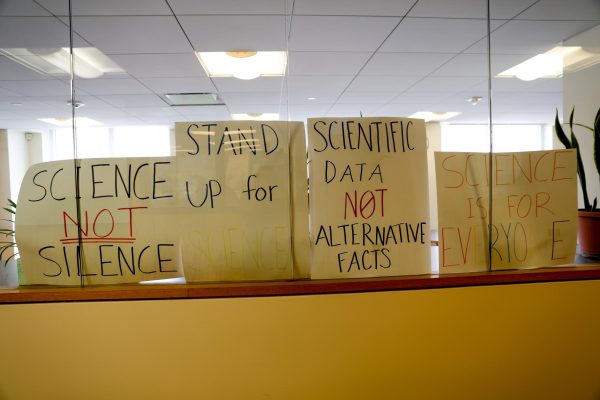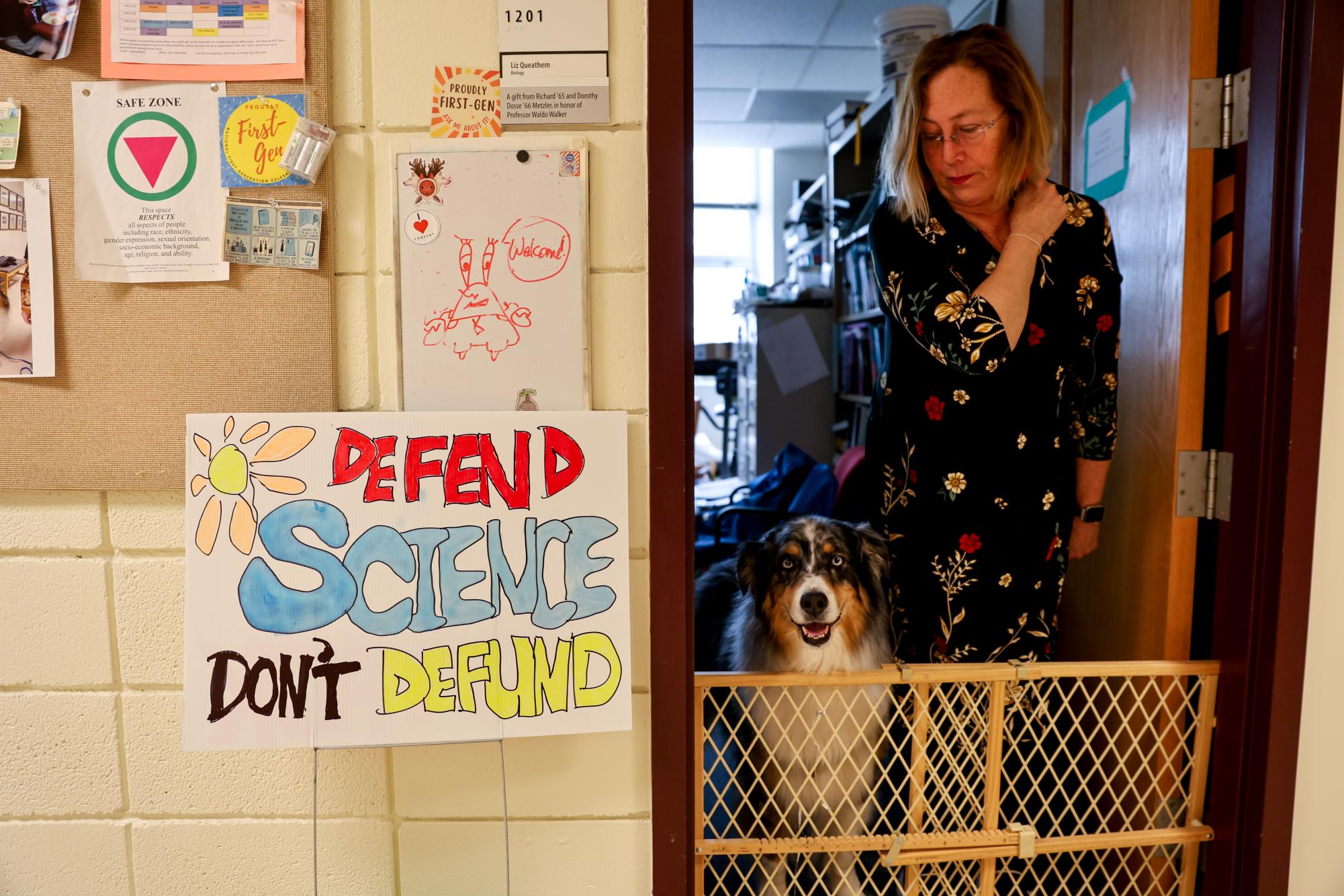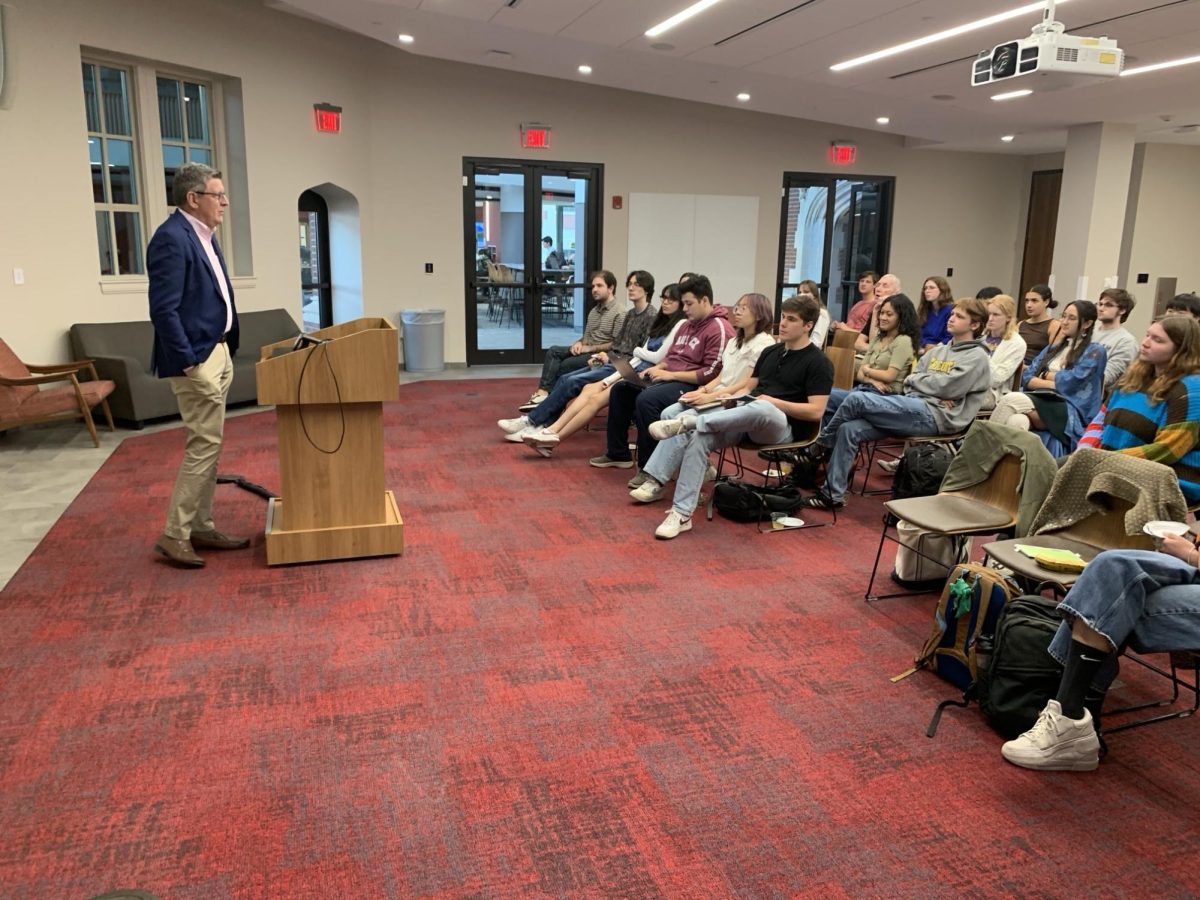Grinnell College’s Office of Corporate, Foundation, and Government Relations, which handles the College’s grants, is closely monitoring and preparing for possible threats to federal funding cuts for its academic programs. Grinnell College has not yet been affected by federal funding cuts.
Around the country, higher education institutions are under pressure of losing federal funding and being asked to remove specific academic programs following President Trump’s recent cuts to various governmental programs, investigations into colleges for anti-Semitism and crackdowns on diversity, equity and inclusion programs.
“The College is actively engaged in scenario planning,” said Ellen de Graffenreid, vice president of communications and marketing.
However, de Graffenreid said that the College can only plan in hypotheticals at the moment and the College’s response will vary based on the situation Grinnell may find itself in the future.
Among Grinnell’s academic divisions, sciences at the College are most at risk of being impacted by federal research funding cuts, said Andrea Tracy, associate dean for student academic life.
“Federal funding across the College … is probably disproportionate to the sciences,” Tracy said. “I would say that is partly because science research requires more funding to do.”
Professor Shannon Hinsa-Leasure, biology, the chair of Grinnell’s science division, said that most science faculty at Grinnell are funded by the College itself and are currently able to secure funding for their research.
“Most faculty here can do their research with the funding they get from the College,” Hinsa-Leasure said. “It’s only a few faculty that have outside grants at one time.”
Nonetheless, some professors with federally funded grants are concerned about the implications of cuts on their research.
Associate Professor Idelle Cooper, biology, is studying damselfly speciation with a grant from the National Science Foundation. While Cooper’s federal grant is intact, she said she is worried that changes to federal immigration policy will complicate her plans to conduct research in Canada with students, which she said was not typically a big deal.
“Now, it’s a little uncertain, especially for students in the U.S. with visas,” Cooper said. “We never really know what kind of things are going to be prohibited or changed.”

(Meilynn Smith)
Cooper and Hinsa-Leasure said that Trump’s executive orders targeting diversity, equity and inclusion (DEI) programs are also affecting the process of applying for federally funded research grants.
Applicants used to include a section on broader social impacts that included DEI issues, but Hinsa-Leasure said that is now changing.
“If I were applying for a grant right now, I would have to change things,” Cooper said. “I’m really glad that I’m at a place like Grinnell that supports DEI.”
Despite possible threats to grant funding, de Graffenreid and Hinsa-Leasure said that the College is supporting faculty to secure grant funding.
“We have good support here to help faculty think broadly about where we could get funding from,” Hinsa-Leasure said.
Grinnell’s Mentored Advanced Project (MAP) program, where students work with faculty on research projects, is not likely to be affected by cuts to federal research funding, Tracy said.
The College, not federal agencies, fund the majority of MAPs. Tracy said that the number of MAPs for summer 2025 is higher than in 2024.
While funding cuts have not impacted Grinnell so far, Hinsa-Leasure and Cooper said they are concerned about the future of American science research in general.
“I don’t think I ever anticipated that science would come under the scrutiny and attack that it has in the last three months, but it’s critical to so many things we do,” Hinsa-Leasure said.
“I’m especially concerned about future grants and the future of the National Science Foundation as a whole,” Cooper said. “I’m trying to be optimistic about it and go forward as if science is normal … I hope there are more privately funded grants available in the future.”







